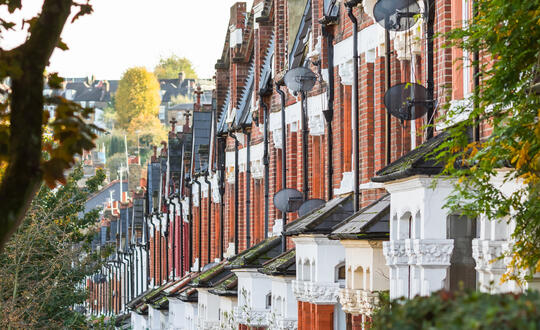
The recently introduced statutory requirement for Biodiversity Net Gain (BNG) is intended to contribute to the recovery of nature. It is intended to ensure that wildlife habitats are in a measurably better state after development has taken place than they were before.
Statutory Biodiversity Net Gain applies to development in England and, with limited exceptions, almost all developments must now achieve at least a 10% net gain. This is measured using the statutory biodiversity metric to assess the pre and post development biodiversity value of a site.
When securing Biodiversity Net Gain, developers must apply the "Biodiversity Gain Hierarchy". Under the hierarchy, habitat creation and enhancement should take place within the application site where possible. Where this is not possible (or it is not possible to achieve the 10% net gain solely on-site), the developer can then either create or enhance off-site habitats themselves or purchase biodiversity units. Lastly, developers can purchase statutory credits; however, the cost of credits is high in order to incentivise on-site and off-site delivery.
It is worth exploring what the potential specific implications this has for affordable housing:
There is a potential for upward price pressure on land and development, which could pass through into the prices charged to RPs for s.106 units – putting increased pressure on RP finances.
It is possible that local planning authorities will accept that increased cost associated with BNG go to an argument that reduced affordable housing can be accepted on developments (on the basis of reduced viability); this results in reduced supply to RPs and potential difficulties in meeting development programmes and further upward price pressure for RPs (as a result of market pressure arising out of reduced supply).
Impact on viability for RP land led development. The cost of provision of BNG (on site or off site (via agreements or by purchasing biodiversity units) or purchasing statutory credits) will impact further on the viability of development.
RPs providing social or affordable rented dwellings face the issue of recovering the ongoing cost of managing the BNG land where the rents are subject to caps (social at formula rent and affordable at 80% of market rent inclusive of service charge), will those caps allow the full recovery of the BNG management costs for RPs?
Interestingly, there are no specific exemptions that apply to affordable housing, notwithstanding its financial constraints and provision of sub-market housing.
This article is for general information only and reflects the position at the date of publication. It does not constitute legal advice.




